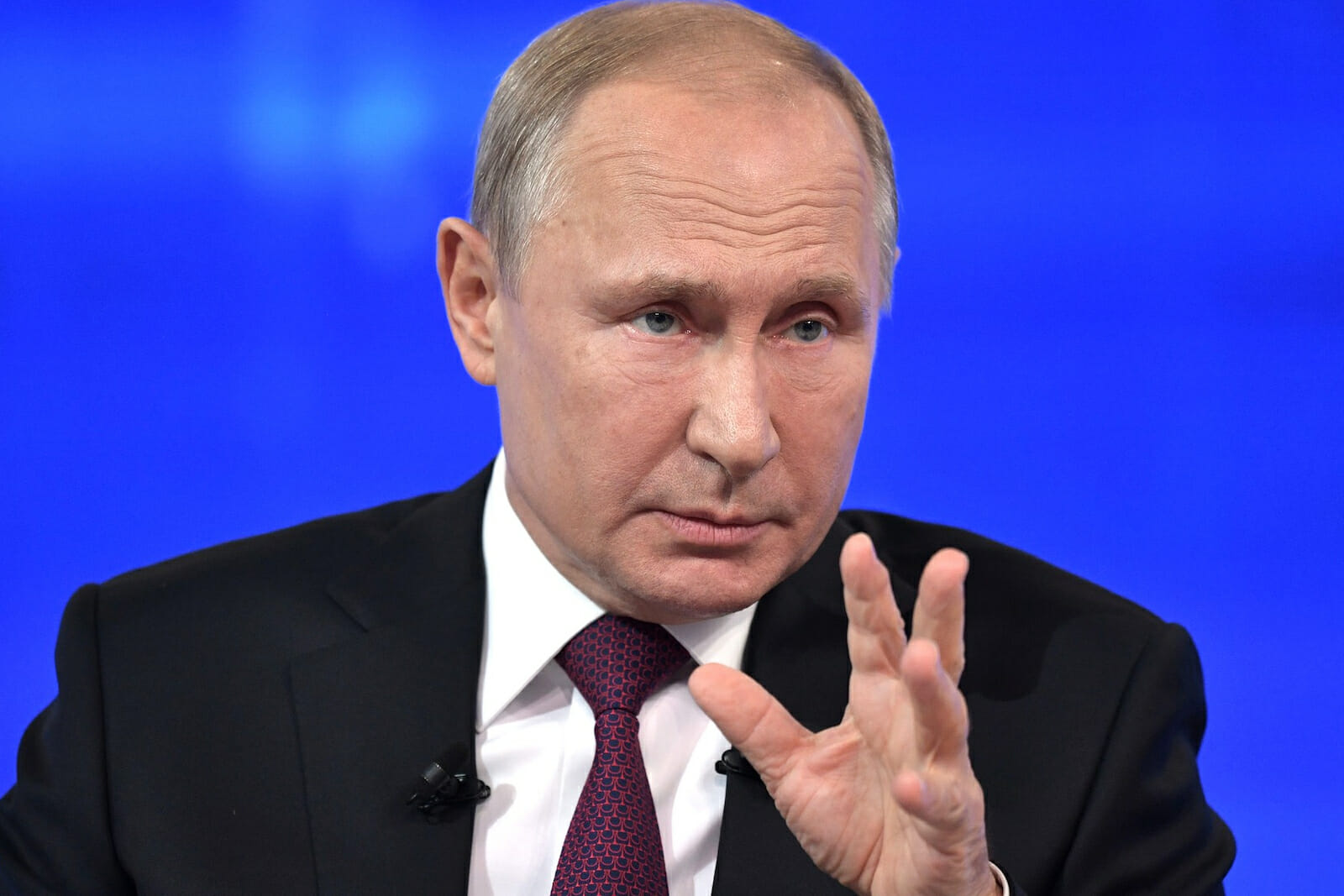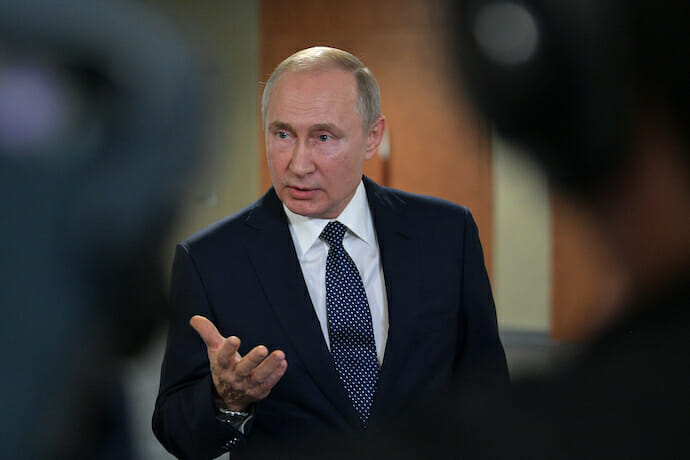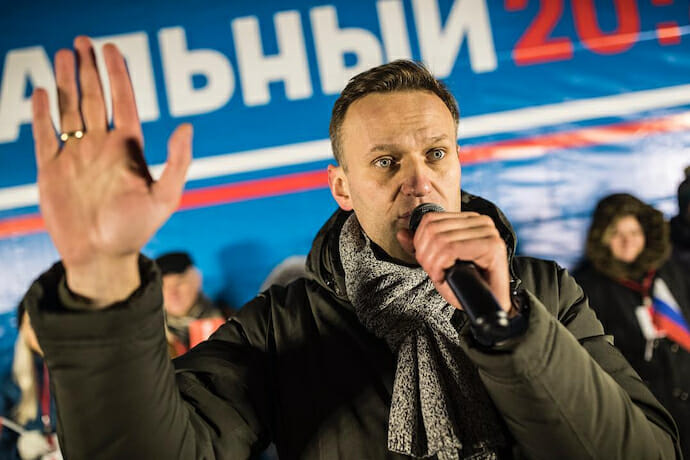
Tech
Russia Solidifies Grip on its Cyberspace, via the Sovereign Internet Law
Robert E. Kahn and Vint Cerf developed the Internet protocol suite in the 1970s and little did they know that their pet project had the potential to revolutionize humankind. The Internet, although being an intricate entity in the contemporary era, has given unfettered access to information and has built an avenue of knowledge-sufficiency to the public.
We witness the power of the Internet when anti-incumbency protests take place somewhere around the world, and the Internet is shut down, estimating the mark it can create on power-hungry leaders, trying to cling onto authority.
Russia’s new Sovereign Internet Law
On May 1, Russian President Vladimir Putin signed the “Sovereign Internet Bill,” which would create an intranet which allows Russians to stay connected even though they are cut off from the rest of the world. As a new policy, the Russian government planned to conduct a nationwide test to check its ability to disconnect their Internet infrastructure from the rest of the world. The new draft framework renders significant modifications to the Russian Internet infrastructure, aptly named Runet or Russian Internet, creating their version of a sovereign Internet. It is a form of national intranet within the boundaries of Russia that could in-effect work independently from the rest of the world, giving Russia a cover of protection from external Internet traffic. At the beginning of March, sensing the implementation of tighter Internet restrictions, thousands of Russian citizens took to the streets of Moscow and other cities, protesting against the new legislation restricting their right to access the Internet.
The rationale behind the recent legislation
During the 2016 U.S. presidential election, there were accusations against Russia claiming their alleged involvement to influence voters and wide speculations regarding their extensive involvement with the Trump campaign. An investigation led by former FBI Director Robert Mueller looked into the allegations of involvement by Moscow and found that while the Trump campaign didn’t “collude” with Russia, it did in fact, meddle in the election.

U.S. officials were worried about similar cyber interference from Russia during the 2018 midterm elections. Subsequently, the U.S. military, under U.S. Cyber Command, undertook a cyber-attack against the Russian troll farm, the Internet Research Agency, and shut it down for several days. According to a recent report by Crowdstrike, an American cyber-security firm, it places Russian hackers at the top in terms of breakout time at 18 minutes, followed by North Korea at 2 hours, and China at 4 hours. Russian President Vladimir Putin anticipating further cyber-attacks by the U.S. and the severe damage it could have on Russia’s cyber assets, along with the consequences it could have on the daily lives of the Russian public, argued the need for better Internet infrastructure.
Russia’s need for a “Sovereign Internet”
Russian need for a change in their Internet infrastructure stems from the centralized directory system of the Domain Name System (DNS) servers. These centralized directories join Internet users to the domain destination they request, like when connecting to any service in India through the Indian (.in) domain or Russia through Russian (.ru) domain. The DNS servers provide the information of the more detailed .in or .ru registries to create the connection and let the user through to a website. Internet Corporation for Assigned Names and Numbers (ICANN) has centralized the management of this form of directory.
Therefore, a reason of concern for Russia would be if the United States wanted the removal of the .ru domain from the registry. Russia would have no way to stop this move. In the past, Russia and China wanted to bring this control under the wings of the United Nations, where the two could wield more influence but ICANN being a non-government entity, disqualified this effort. To gain control over the DNS system and avoid foreign interference, the Kremlin found its reason to develop a Russian Internet in the event of a .ru demise, facilitating Runet to function on its own.
Various other significant legislation passed recently in Russia has led to strained relations between tech giants like Google, Facebook, and Twitter forcing them to relocate user data within the boundaries of Russia in their servers and data centres which is an attempt to keep the Internet traffic within the country and hold it under the jurisdiction of the Russian government. Other laws obligating service providers to allow state surveillance and the ability to intercept online communications are already in place.
To counter satellite provided Internet, the Kremlin enacted laws demanding these services to have ground-based stations within the Russian borders that can relay all Internet traffic to Russian authorities. The bill, which would go into force in early November, requires Internet service providers within the country to filter all Internet traffic through specific nodes routing through the Roscomnadzor, the Kremlin’s Internet censor. By introducing Runet, the capability of the Russian government to control, and monitor data flow is vast and services outside the country would never get a foothold in the Runet system. Creating a closed system, the Kremlin not only monitors data traffic but makes it less susceptible to external cyber-attacks, thereby keeping Russian cyberspace more guarded.
Sovereignty over cyberspace to control vulnerability
Furthermore, sovereignty over cyberspace reduces state dependence on foreign organizations that have taken up certain critical functions like the U.S.-based non-governmental organization, ICANN, which provides stability to the global Internet in assigning names and numbers to Internet domains. Although independent from the U.S. government, countries like Russia and China view ICANN with suspicion because of plausible Washington influence.

Sovereignty over cyberspace boils down to equality among states by exercising direct control over DNS servers which ultimately controls all Internet traffic. Russia, through the Runet implementation, expects to keep digital communications and data transfers within the country’s national infrastructure and not leave the Russian Internet geography. The Kremlin is seeking to enhance its security in the cyber domain due to rising tensions with Europe and the United States. It is reasonably an effective method of threat deterrence that Russia foresees to create through the development of independent Internet infrastructure. Coupled with efficient domestic connectivity, the Kremlin, attempts to improve on its vulnerabilities in its critical information infrastructure.
An added perk that comes out of this proposed intranet is the ability to counter domestic political opposition. The example of the messaging app Telegram, blocked by the Russian government because they noticed the rise of anti-government activists using the app to transmit information, as the app is a highly encrypted messaging service based in London. The reconfiguration of the Internet system of Russia through Runet could easily deny access to a myriad of foreign-based web services.
Fellow countries in the cyberspace
There are many examples of quarantined Internet systems in the world. The “Great Firewall of China” is one of the first examples of a sovereign Internet system in the global Internet sphere that controls data flowing in and out of the country. China has become infamous for the scrubbing of Twitter posts they find to be distasteful to their notion of state interest and free speech. This speaks volumes when their citizens use the Sinicized versions of Google and Facebook while there is a ban on Twitter. Beijing today operates the most sophisticated surveillance and censorship platforms in the world. North Korea has a closed Internet system as does Iran. In the case of Iran, they have announced the introduction of the national information network, technically a domestic Internet which is nearly complete.
This form of cyber-governance goes on to explain the difference in cyber-laws from country to country and maybe even region to region. Iran, China, and Russia not only hope to establish a new form of Internet fragmentation but also imperil the global network architecture of cables and servers around the globe, thereby allowing them to control the flow of information and consequently cut it off when they deem necessary. Many other countries could follow suit and change the entire world order.
Possible outcomes
Soon the global Internet system will notice a bifurcation in the governing principle of the Internet through the lens of the West, mainly the U.S., and the other through the lens of China and Russia. The soundest example can be the development of Project Dragonfly, a censored version of Google’s search engine to appease Chinese authorities.
Moreover, governments are seen to accentuate it through new and stringent legislation to isolate their Internet and their data from others. Therefore, the Russian motivation to build a sovereign net improves the capability of Moscow to conduct large-scale cyber-surveillance and monitoring, proffering them the capacity to secure themselves. They accomplish this feat by insulating themselves from any global cyberinfrastructure disabilities. Blocking Internet services to companies like Telegram, LinkedIn, Dailymotion and other web-based services and forcing them to adhere to the Kremlin rule to shift their data centres within the country’s boundaries, places pressure on companies, hampering their services. Consequently, it would negatively impact the youth of Russia being less informed of the rest of the world and cut-off from autonomy to choose the service they want.
Additionally, this system would also give the ability to counter anti-government activism on a large scale by dismembering its citizens from a free and open Internet environment. This move would return central control of all Internet traffic within Russia to the government, removing the need for data to be transferred overseas and back through servers. The question of Runet creating sovereignty in cyberspace leaves unanswered questions like the end product is unknown, but it will be a significant shift in the free cyberspace experience of Russia. Recognizing that there is no global consensus on the governance and usage of the Internet, nations with the motive to regulate thoughts and speech would surely follow suit in appropriating this deficiency in the global system by cracking down on the Internet, and ultimately create their kind of cyber governance.

